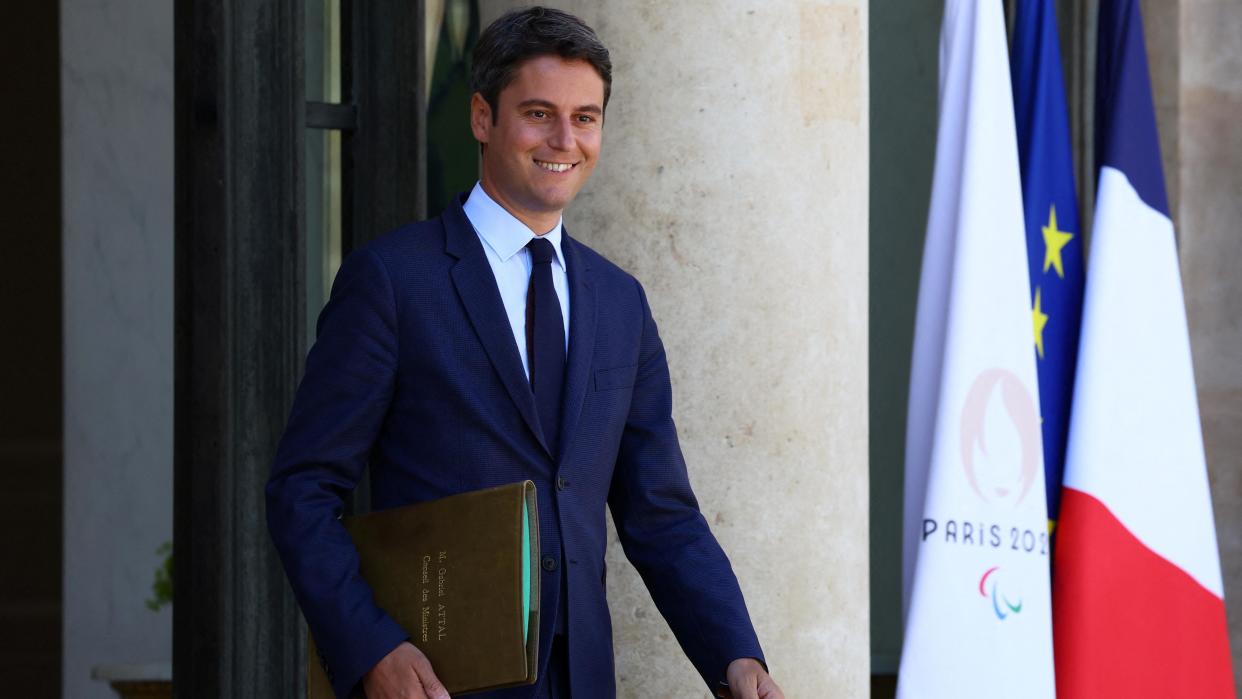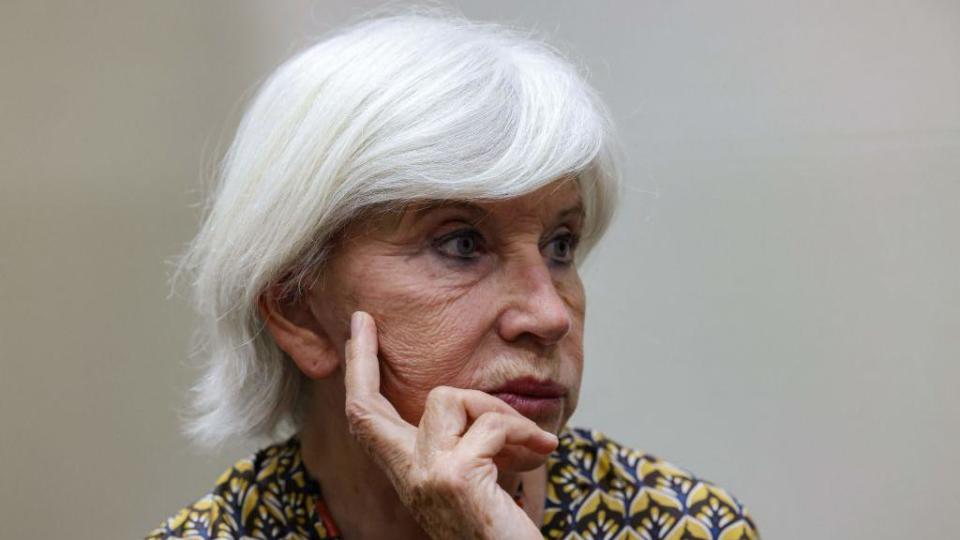French PM Attal set to stay on as caretaker for Olympics

- Oops!Something went wrong.Please try again later.
- Oops!Something went wrong.Please try again later.
French President Emmanuel Macron is expected to accept the resignation of his prime minister Gabriel Attal by Tuesday evening following their centrist party's defeat in parliamentary elections, French media report.
However, Mr Attal is set to remain in place as head of a caretaker government for the Paris Olympics which start in 10 days' time.
A left-wing alliance that won the 7 July election has so far been unable to agree on a potential candidate to replace him.
Mr Attal made no comment to journalists as he left his government's final cabinet meeting at the Élysée Palace, but President Macron is understood to have said the caretaker government could remain in place for "some weeks".
Mr Attal told President Macron he would stay on out of a sense duty "until the very last minute", "as long as you deem necessary, on the eve of major events for our country", according to remarks quoted by French news agency AFP.
The French prime minister had already handed in his resignation the day after his Ensemble alliance came second in the snap parliamentary vote called by President Macron.
National Rally (RN) won European elections in early June but then came third in the 7 July parliamentary vote.
As no party won an outright majority, Mr Macron asked Mr Attal to stay on for the time being and then called on mainstream parties to form a coalition with a "solid" majority, avoiding both RN and the radical France Unbowed, which is the biggest party in the left-wing New Popular Front.
Since its election victory, the left-wing alliance has been marred by infighting. Its two biggest parties, France Unbowed (LFI) and the Socialists, have both rejected each other's candidates for prime minister.
On Monday, three of the NFP’s main parties - the Socialists, the Greens and the Communists - said they had agreed on former diplomat Laurence Tubiana as a nominee.

Ms Tubiana, 73, is head of the European Climate Foundation and led the 2015 Paris Accords on climate targets. She is also a former adviser to former Socialist President François Hollande and last week she signed an open letter from 70 intellectuals urging the NFP to work immediately with others to form a broad-based "republican programme and government".
Olivier Faure of the Socialists said that she “corresponds completely with what we’re looking for” and said she had agreed to have her name put forward.
But LFI’s Manuel Bompard said he did not consider Ms Tubiana to be a “serious” proposition.
Citing the open letter in Le Monde, Mr Bompard said that having her as prime minister would be like “letting Macron in by the backdoor”.
Many had foreseen the NFP's difficulties in agreeing on a prime ministerial candidate.
The alliance, which was hastily cobbled together after Mr Macron called snap parliamentary elections in June, brought together parties with very different views and with varying degrees of reluctance to work with Mr Macron’s centrists.
LFI in particular has a longstanding and open distrust with the Ensemble alliance, which condemns the party as extremist.
But the NFP does not have enough seats to form a credible government by itself.
Some members of Mr Macron’s alliance, such as ministers Gérald Darmanin and Aurore Bergé, have advocated working with the conservative Republican Right, who have been renamed since some of their colleagues in the old Republicans party formed an alliance with National Rally.
Mr Macron’s decision to call a snap election off the back of RN's European victory in June angered many of his allies as well as his opponents.
The French president has made no public comment since his party's defeat in the parliamentary vote.
Last week, he wrote a letter to the country in which he called on all political parties to “rise to the occasion and work together” to build a coalition.

